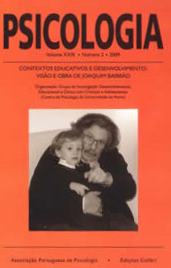Father involvement in the offspring developmental process: An intergenerational approach
DOI:
https://doi.org/10.17575/rpsicol.v23i2.330Abstract
The present study addresses the relations between the involvement of the contemporary father in the developmental process of school age offspring, and the representation of his own father involvement throughout childhood and adolescence. Two forms of father involvement were considered: Amount of time spent in Interaction and in Availability, which was measured using the Interaction and Availability Interview Guide and adults’ retrospective representation of their own father involvement, which was assessed using the Father Involvement Scale. The study was conducted with 189 fathers and 407 children (8-10 years-old). Overall, results showed that the more positive the father’s representation of his own father involvement, especially in what concerns Emotional Support and Stimulation and Sharing of Domestic Work with the mother, the more he interacted with the child. These results are discussed in terms of the intergenerational continuities and discontinuities as determinants of the involvement of the father.


